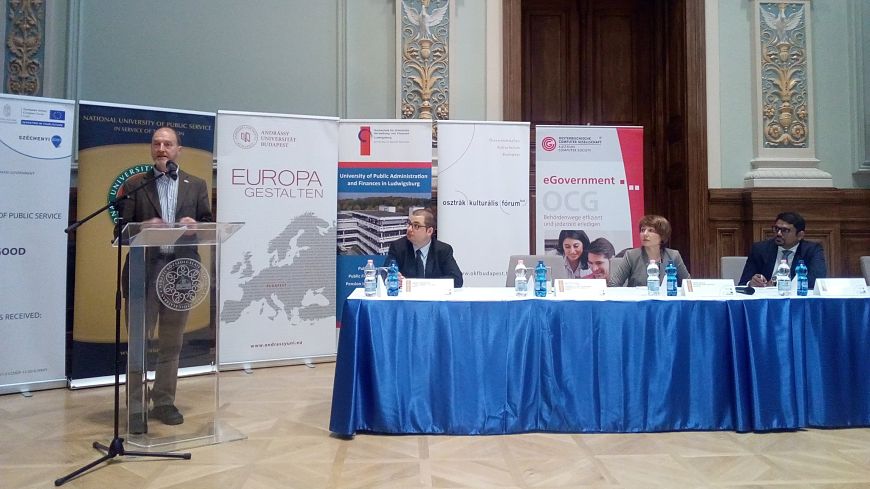“We have to raise awareness about the benefits of the smart city technologies, and also promote the use of open and democratised data”, stressed Congress member Martin FODOR (United Kingdom, ILDG) addressing the CEE e|Dem and e|Gov Days 2018, organised by the Austrian Computer Society in Budapest (Hungary), on 3rd May 2018. He also underlined that local and elected representatives should reflect on how to create “smart citizens”, that is, engaged and empowered citizens who can positively contribute to the development of the city and the community.
He also took part in a panel discussion on “Open Data Requirements for Smart Cities - What do we need from the Legislators?” organised by the Congress at the Andrassy University of Budapest. He took this opportunity to present the report on “Open data for better public services” adopted at the 32nd Congress session and recalled that open data offers greater transparency and not only provides citizens with the information to understand what their local governments do but also empowers them to contribute to the decisions-making process.
“We have to involve everyone into the process to make sure that we are not leaving anyone behind” concluded Martin FODOR, highlighting the citizen participation in the making of smart cities.









